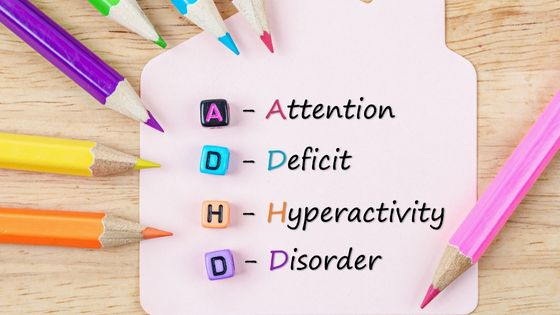ADHD or Attention Deficit and Hyperactivity Disorder is commonly diagnosed in children but in many cases it can affect adults too. This developmental disorder has cognitive and behavioral symptoms that get in the way of living a healthy and balanced lifestyle.
Because symptoms lead to disruptive behaviors such as fidgeting or an inability to focus, it affects many aspects of daily life from maintaining personal relationships to upholding or working towards a career.


For those affected by ADHD in adulthood, symptoms can worsen with certain types of environmental and biological triggers. For many, trying to figure out their ADHD brain as its called, can lead to frustration and confusion. Controlling symptoms that negatively affect your life starts with professional support, lifestyle modifications, and identifying the factors that make your symptoms worse.
In this article, we explore common ADHD triggers and the steps that you can take to ease or prevent them.
What are ADHD Triggers?
To understand ADHD in adults Toronto therapists agree that individuals should learn how to manage factors that make symptoms worse and affect the ability to live a healthy lifestyle.
Triggers can range from dietary imbalances to poor sleep and overstimulation caused by media.
1. Imbalanced Diet
Studies have found that certain deficiencies and poorly balanced diets can lead to symptoms that increase levels of agitation and restlessness. In some cases, the medication that is prescribed to control specific symptoms is responsible for fatigue and appetite suppression that can cause any individuals to fail to integrate a healthy diet.
Another dietary factor that many people are concerned about is the consumption of sugar and synthetic ingredients. Research shows that there may be a connection between additives and processed food and the symptoms of ADHD. Artificial ingredients could make symptoms such as lack of attention and impulsivity worse in only a short period.
One of the best ways to address dietary concerns is to incorporate whole and healthy foods. Protein, fiber, and good choices of carbohydrates such as sweet potato can curb spikes and dips in energy throughout the course of the day.
2. Poor Rest
A lack of sufficient sleep and rest can make your symptoms much worse. A combination of medication and improper sleep can negatively affect the healthy function of the central nervous system (CNS). Because the CNS is already affected by the disorder, chronic fatigue can leave you unable to focus or control symptoms of impulsivity.
On the other hand, stimulants including caffeine should be avoided. If you experience inattention and poor impulse control, then easing the use of stimulating substances and getting enough sleep are important steps to living a balanced lifestyle.
3. Media
Many individuals who are struggling to manage ADHD as adults may not realize the negative impact that media has on their symptoms. There may be an association between violent images and video content and the worsening of ADHD. Individuals tend to become overstimulated and are unable to sustain their focus on regular tasks.
To minimize this occurrence, it is best to reduce screen time and to be aware of the types of content that is viewed on a computer, mobile, or television screen.
4. Stress and Pressure
If stress and pressure are not properly managed, it can quickly affect the ability to sustain concentration and maintain a sense of balance. For individuals who are struggling to pay attention or execute a particular task, the stress of the situation can make it harder to sustain concentration and focus.
Managing ADHD
Many people who struggle with the triggers of ADHD consult with their professional and dedicated therapist to learn about the options to manage their symptoms and ease their stress.
To address ADHD in adults Toronto professionals recommend improvements in the daily diet and ways of finding rest and relaxation without any type of overstimulation. Counselors will work with adult patients to advise on the programs that can be introduced to learn to control disruptive symptoms and not let ADHD get in the way of living a healthy and balanced lifestyle.
Because ADHD is a long term condition and can place significant limitations on balanced health and function, consultation with a dedicated and professional therapist can introduce the tools and the strategies that you need to better manage the disorder and ease the negative impact of severe symptoms.
















